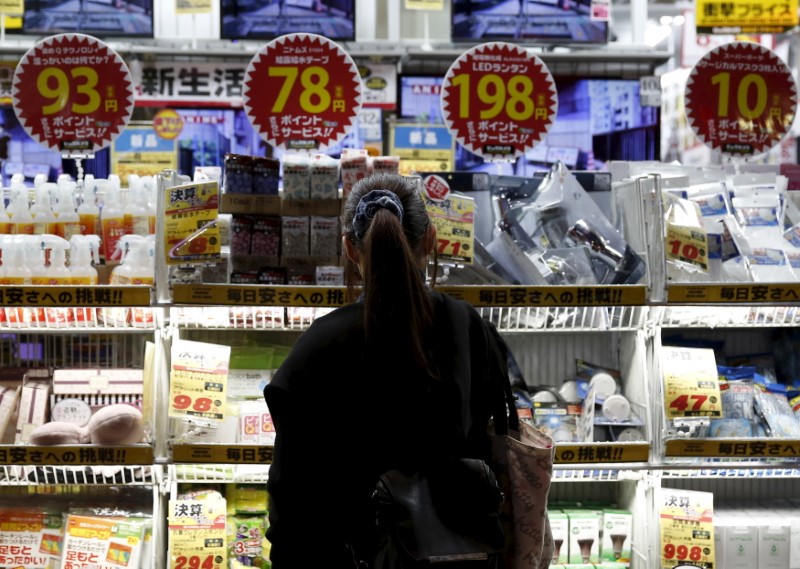Investing.com’s stocks of the week
By Stanley White
TOKYO (Reuters) - Japanese companies' inflation expectations eased slightly in September from three months ago in a worrying sign the economy continues to struggle with a deflationary mindset.
Companies surveyed by the Bank of Japan expect consumer prices to rise 0.7 percent a year from now, lower than their projection for a 0.8 percent increase three months ago.
Firms also expect consumer prices to rise an annual 1.1 percent three years from now, unchanged from the previous survey.
Japan's economy has grown at a healthy pace this year, but consumer prices have eked out only small gains, which could hasten calls for the BOJ to either expand monetary easing or overhaul its approach to reflating the economy.
"Companies are more optimistic about overseas economies and don't expect domestic retail prices to rise that much," said Shuji Tonouchi, senior market economist at Mitsubishi UFJ Morgan Stanley (NYSE:MS) Securities.
"We won't see an immediate change in the BOJ's policy, but this does show that monetary easing will have to remain in place for a long time."
The data come one day after the BOJ's tankan survey on corporate sentiment showed big manufactures are the most confident in a decade as global demand adds momentum to the economic recovery.
The tankan survey also showed companies expect the economy to lose a little momentum in the next three months.
Core consumer prices, which include oil products but excludes fresh food prices, rose 0.7 percent in August from a year earlier, marking the eighth straight month of gains but still well below the BOJ's 2 percent inflation target.
One BOJ policymaker called for expanding monetary stimulus at a policy meeting in September, raising concerns that the board could become divided.
The central bank next meets on Oct. 30-31, where it will update its forecasts for consumer prices. A lowering of the forecasts would put pressure on the central bank to take further steps.
The BOJ started the survey on corporate price expectations from the tankan in March 2014 to gather more information on inflation expectations, key to its current stimulus programme.
